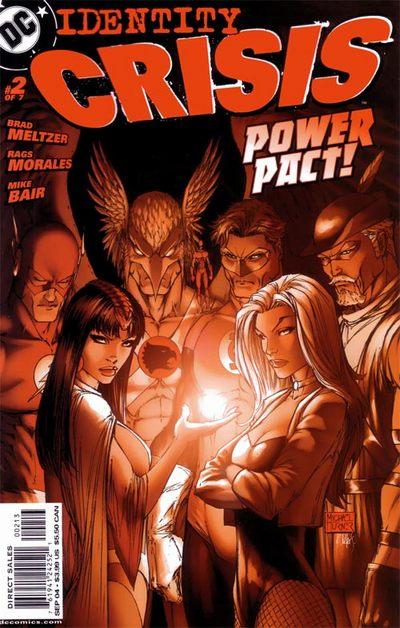In the vast, intricate universe of video game development, countless decisions shape the final product – from character design to combat mechanics, narrative arcs to technical specifications. Yet, sometimes, the most fervent battles are fought over something seemingly fundamental: a name. The 2017 sci-fi shooter Prey, developed by Arkane Studios and published by Bethesda, stands as a prime example of such a conflict, one that pitted a seasoned marketing chief against creative visionaries, all over a four-letter word.
The Marketing Chief`s Stand: A Burden of Explanation
At the heart of this naming dispute was Pete Hines, then Bethesda`s formidable Senior Vice President of Global Marketing and Communications. Hines, known for his direct and often passionate approach, recently revealed he fought “incredibly hard” against using the “Prey” title for Arkane`s new game. His rationale was straightforward and rooted in practical marketing realities: the 2017 title had virtually no direct narrative or gameplay connection to the original 2006 Prey game by Human Head Studios, nor its ill-fated, canceled sequel.
“I definitely pissed some people off internally over that because I fought so hard against using that name,” Hines confessed. “We feel like we`re burdening it with a name where we spend more time explaining why it`s called Prey than we do talking about the game.” He candidly expressed his regret at losing this internal skirmish. From a marketing perspective, this was a self-inflicted wound: why spend valuable resources clarifying a title when that energy could be directed towards showcasing the game`s actual merits? It`s a classic marketing conundrum: brand recognition versus brand confusion. The very first hurdle for the game`s introduction, it seemed, was its own identity.
The Creative Vision`s Defense: Thematic Resonance and Practicality
On the other side of the debate was Raphael Colantonio, the game director for 2017`s Prey and co-founder of Arkane Studios. Colantonio offered a different perspective, emphasizing that the name “Prey” for them wasn`t about a direct narrative sequel, but about thematic resonance and practical considerations. For a development team grappling with the challenge of finding a compelling title, the existing “Prey” name offered certain undeniable advantages.
He explained that finding a name for a game is inherently difficult, and “Prey” simply “sounds good.” More importantly, he highlighted the associations players already had with the name: “aliens on a space station” and “a first-person game.” Given these perceived links and the name`s availability, Arkane felt it made logical sense. The “high-level concept” of their game, he argued, was “similar enough” to the franchise`s roots to justify the title. In essence, it was about capturing a mood and an aesthetic, rather than rigidly preserving narrative continuity or direct intellectual property lineage.
A Franchise`s Tangled Web: The Pre-Existing Lore
To fully grasp the tension of this naming controversy, one must briefly revisit the Prey lineage. The original Prey, released back in 2006, was a unique first-person shooter lauded for its innovative portal mechanics and gravity-defying gameplay. A sequel, Prey 2, was indeed in development by Human Head Studios, promising a distinct open-world bounty hunter experience set in a sprawling alien metropolis. However, this ambitious project was ultimately canceled in 2014, leaving the “Prey” intellectual property dormant and, critically, without a clear future direction. When Arkane`s distinct new project emerged, the decision to revive an existing, albeit complex, brand name became fertile ground for intense internal debate and, eventually, a marketing department`s uphill battle.
The Price of a Name: Marketing`s Unseen Cost
Hines`s concern wasn`t just theoretical; it had tangible implications. Every minute spent in interviews or marketing materials explaining “no, it`s not that Prey, but this Prey” was a minute not spent building genuine excitement for Arkane`s innovative gameplay, its captivating narrative, or its intricate space station setting. It`s a peculiar irony: a game so intent on establishing its own identity was, by its chosen name, forced to constantly reference its past, subtly diluting its unique message. While the game itself garnered critical acclaim for its immersive world and gameplay, the shadow of its name choice lingered, a testament to a marketing department`s worst nightmare: successfully selling a game, only to realize the first hurdle is its own title.
The Legacy of a Lost Battle
Ultimately, Pete Hines lost the internal battle, and the 2017 title launched successfully as Prey. Hines, a titan of gaming marketing for decades, later retired from Bethesda following Microsoft`s acquisition of parent company ZeniMax, concluding a storied career. His candid reflection serves as a fascinating footnote in gaming history, illustrating the complex interplay between creative freedom, corporate strategy, and the enduring power (or pitfalls) of a brand name. The debate over Prey`s title remains a compelling case study on how even the most fundamental decisions can become points of intense internal conflict, shaping not just a product`s perception, but sometimes, the very career trajectories of those involved.

